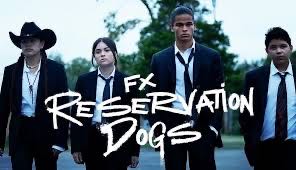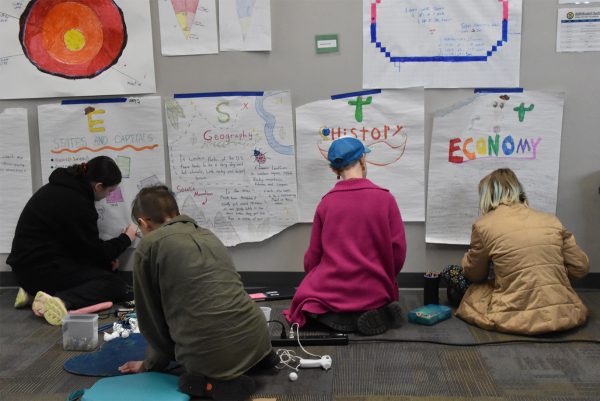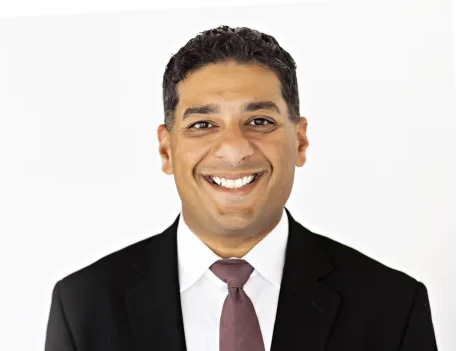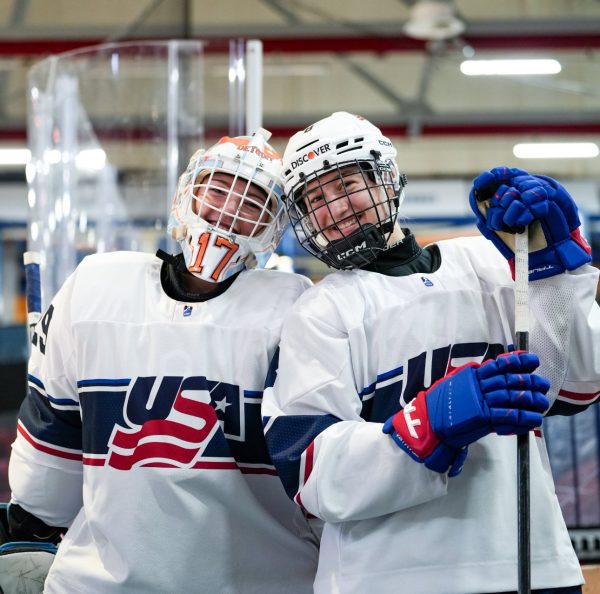Indigenous People’s month: Seniors Sam Christensen and Brooklyn Champagne
As November comes to a close, so does Indigenous People’s month. Although social media usually advertises months (such as Black History month and Pride month) I see Indiginous People’s month a lot less. To bring awareness to this, I decided to showcase two of our Indiginous seniors: Brooklyn Champagne and Sam Christensen.
The first thing I was curious about was how they struggled in their past because of their culture. I remember one specific time in AP Language class my junior year in which Christensen spoke up about a specific statistic involving Indigenous people during a discussion and she was instantly cut off with a chorus of “that’s not what we’re talking about right now.” Christensen did give me a lot of insight into her struggles, though. “When I was younger, it was really hard. In Middle School, I was segregated against, called names, and people just didn’t know my culture. They just assumed I was something I wasn’t, and therefore I was ashamed and embarrassed of who I really was but then as I got older, I got to embrace myself and my culture,” Christensen said.
Champagne had a very different answer but still an interesting one nonetheless. “I would say one way I struggled was like, in the college process. Like, when I’m trying to do my demographics and everything, or like when I’m applying for housing and certain things it’s weird,” Champagne said, “It’s like, less than 1% in every college is Indigenous people… it’s really sad.”
Although we live in a state with five reservations, Champagne and Christensen both agree that Indigenous people’s struggles are not talked about enough. “Last year in American History was like, the first time we really talked about the Dawes Act and we talked about it for like, a day. That’s like a major event,” Champagne said.
Christensen added, “I don’t think it’s talked about enough and when it is, it’s kind of a joke, or people don’t take it seriously.” The Dawes Act passed in 1887 and broke up tribal lands in the hopes of encouraging the Indigenous peoples to assimilate. Essentially, it stole the land and prohibited their culture and self-government.
Champagne and Christensen also have felt discriminated against because of their culture. “I don’t know if it’s like, ‘yes,’ but not to the extent that it was, you know what I mean?” Champagne said, “I just feel like… it’s just there’s so much underrepresentation of us.”
“The only representation we have, really, is just in history books, Pocahontas, like, that’s all we really get,” Christensen said.
Next, I was really interested in their culture. The only connection I have is through my mom who works in Manohomen on the reservation there, but otherwise I have little to no access to learning about the culture besides the internet. Christensen is part of the Ojibwe/Chippewa tribe and enjoys going to powwows. “My Aunt on my mom’s side was on a reservation and sometimes we go to powwows in the summer and that’s pretty much how I learned about the culture, is on the reservation, because in Fargo there’s really nothing,” Christensen said. She also really loves the spirituality aspect of Indigenous people. “Personally, I have no idea what happens after death, but their stories and stuff make it really interesting,” Christensen said.
Champagne also enjoys going to powwows, and she’s from the Metis tribe from northern North Dakota on the border. “We go to the Metis reservation and we just talk to some of the people, like we have a lot of community groups we go to to talk about it with other people,” Champagne said. She really likes the determination her tribe holds. “I would say that even after the Northwest Resistance, which is like… we all got slaughtered in… all my people vowed to keep their culture alive,” Champagne said. I thought it was really neat how Champagne and Christensen both travel to be with people who share their culture.
Lastly, I asked them if they had any last remarks. “I would say that a lot of Indigenous people still struggle today and if you go to reservations, they’re very poor communities because they don’t get a lot of government help which I think is something that people need to know, like they’re not helped as much as they need to be,” Champagne said.
Christensen continued, “Going along with that, don’t feel bad for us, like, we’re just like you. The history doesn’t define us as people, things happen and it’s been swept under the rug so if you do choose to study it, proceed with caution because it’s a really dark history for Indigenous people.”
As someone who wrote a short excerpt my Sophomore year about how the history of Indigenous people wasn’t taught very well in my past years of schooling, I found this interview really fascinating. Learning about oppressed cultures from the people being oppressed is always eye opening and I hope to share Champagne and Christensen’s experiences with you as well.
Your donation will support the student journalists of Fargo North High School. Your contribution will allow us to resume physical printing of our newspaper for students at Fargo North!
I'm the editor-in-chief for The Scroll this year. Journalism is one of my few passions and what I'll be doing after high school at MSUM. I'm also involved...





